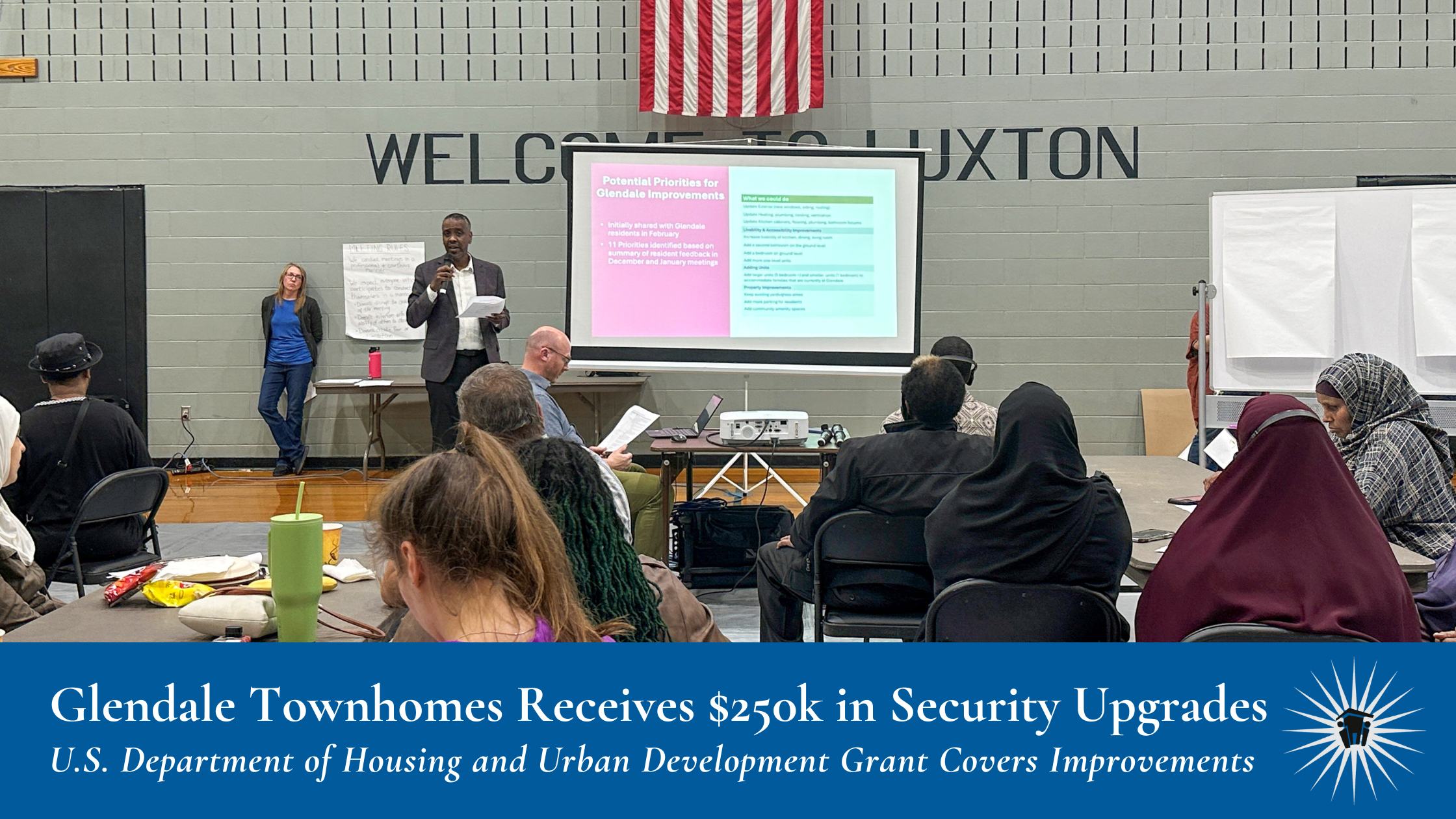Earlier this month, MPHA completed more than $250,000 in safety and security upgrades at its Glendale Townhomes. Work included additional surveillance cameras in strategic areas of the property to help curtail unwanted, non-resident disturbances; camera server replacements; and network infrastructure upgrades that included a hard-wired fiber optic line to replace existing wireless network connections to improve the stability of the internet and security network connections at the site. A $250,000 grant from the U.S. Department of Housing and Urban Development (HUD) covered nearly all costs associated with the upgrades.
This new investment in Glendale’s security is just the latest in a series of investments MPHA makes in resident safety and security—a top priority for MPHA residents and agency leaders. Annually, MPHA spends more than $5 million on security measures to ensure residents feel safe in their homes across the agency’s portfolio of nearly 6,000 units.
Other recent security investments include more than $1 million in new surveillance cameras across the portfolio, an upgraded entry guard system at Lynway Manor (serving as a pilot for possible future upgrades in other high-rises), and fencing at the Elliot Twins and Cedar High apartments.
These new investments augment MPHA’s existing security apparatus. The agency maintains an internal security team that actively works with residents, staff, and local law enforcement agencies to make MPHA properties safer for all residents. The internal security team is supplemented by a third-party security firm that routinely patrols several MPHA properties, including Glendale. Additionally, the Minneapolis Highrise Representative Council hosts regular meetings between MPHA residents and the Minneapolis Police Department to share safety concerns in and around agency high-rises while also coordinating a community watch program in high-rises with resident volunteers.
Like many MPHA priorities, there is insufficient annual federal funding to further address security concerns. In fact, HUD does not provide MPHA with dedicated annual funding for resident safety. That means agency leaders must thoughtfully balance operational costs and needs to accommodate the agency’s annual security budget.
But MPHA leaders are no stranger to doing more with less. Historically, HUD has only provided MPHA 10 percent of the annual capital funding the agency needs to maintain its nearly 6,000 units. Following decades of compounded federal disinvestment, MPHA faces a capital backlog estimated at $290 million for its entire portfolio. At Glendale, that capital backlog is currently estimated at more than $22 million across the community’s 184 townhomes.
This grant application and award illustrate MPHA’s commitment to preserve and protect the vibrant Glendale community, both today and in the future. With MPHA moving to the next phase of planning for the renovation and/or redevelopment of Glendale earlier this summer, agency staff are centering Glendale residents’ priorities—like safety—in feasibility plans and the community vision framework that will guide the future of Glendale.



